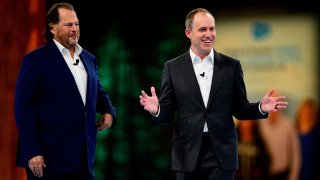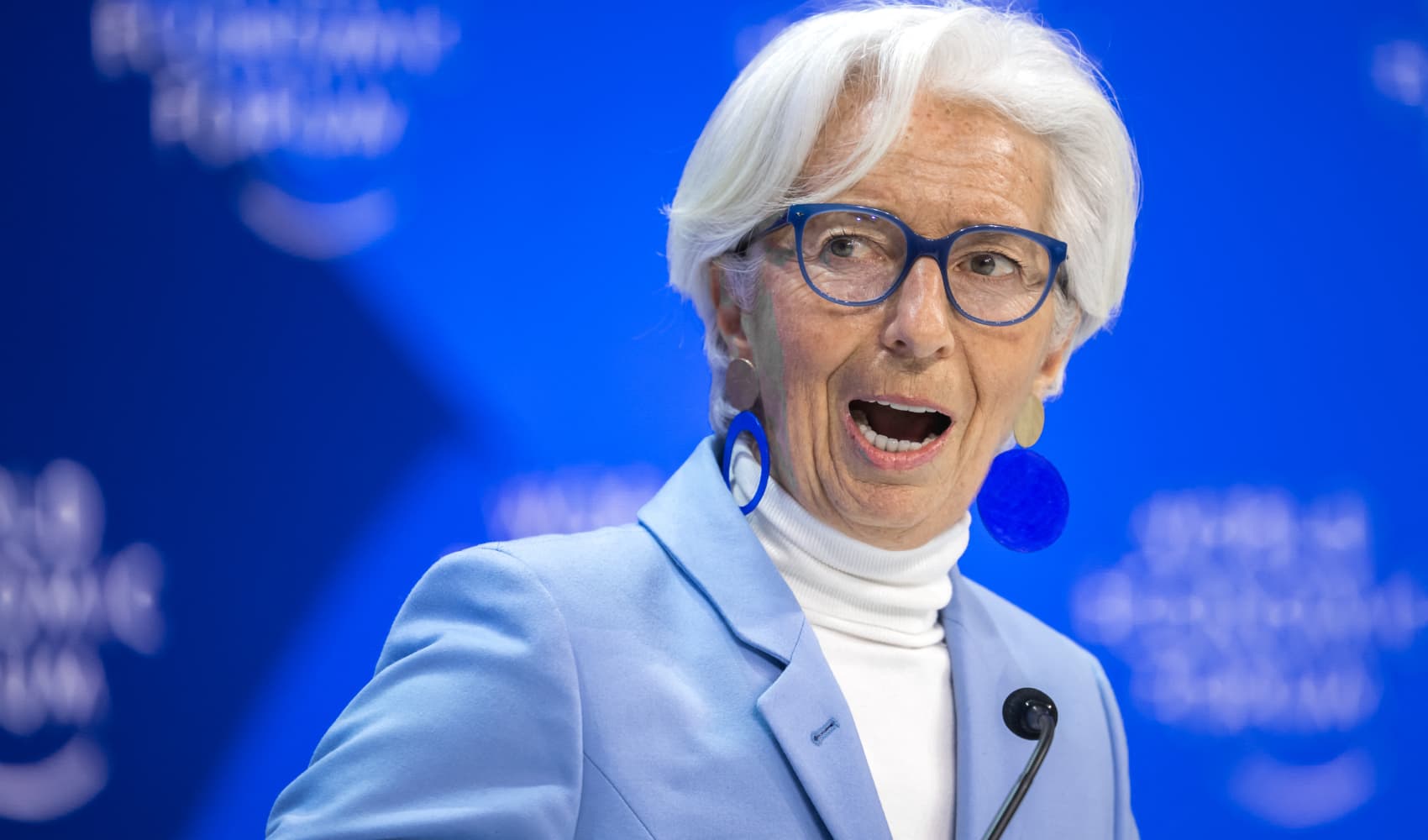
- A year after being promoted to the co-CEO role alongside Marc Benioff, Bret Taylor is leaving Salesforce.
- It's the second time in less than three years that Benioff has lost a co-CEO.
- Keith Block held the position for 18 months, before leaving in 2020.
Salesforce said Wednesday that Bret Taylor will step down as co-CEO on Jan. 31, leaving Marc Benioff alone again at the top of the cloud software company he co-founded in 1999.
Benioff closely embraced Taylor, who joined the company through the 2016 sale of his productivity software startup Quip. Taylor played a key role in Salesforce's $27.1 billion acquisition of Slack, the company's largest transaction ever.
Salesforce promoted Taylor, 42, exactly a year ago from the position of president and chief operating officer. Benioff described Taylor then as "a phenomenal industry leader who has been instrumental in creating incredible success for our customers and driving innovation throughout our company."
Get Philly local news, weather forecasts, sports and entertainment stories to your inbox. Sign up for NBC Philadelphia newsletters.
Benioff said that Taylor left Salesforce to found a new company.
"We have to let him be free, let him go, and I understand, but I don't like it. And Bret, you know that you're always going to be our brother. We love you deeply, you have a home here, we're gonna try to get you back somehow. Don't think you're gonna somehow get out of this alive because you're not," Benioff said on an earnings call with analysts.
Money Report
His departure is a surprise considering how rapidly he climbed the ranks and gained the trust of Benioff and the board. Two months ago, Benioff and Taylor were speaking together on stage at the company's Dreamforce conference in San Francisco. The duo each donned rabbit ears, a reference to the rabbit mascot for the Genie service Salesforce was introducing at the time.
The announcement also calls into question Benioff's ability to work alongside someone with an equal title. Almost three years ago, Keith Block, an ex-Oracle executive, left as co-CEO of the company. He'd held the role for just 18 months after being promoted from operating chief.
Benioff told CNBC soon after Block became co-CEO that he liked the idea of having someone share the top job so they could have a "divide and conquer strategy" and so he could spend time investing, doing philanthropy and mentoring other business leaders.
It's been a hectic year for Taylor.
He was chairman of Twitter heading into Elon Musk's purchase of the social media company and played a central role in the chaotic negotiations with Musk, who tried to terminate the $44 billion deal soon after agreeing to it.
Taylor announced publicly in July that Twitter would pursue legal action to enforce the contract. The two sides were scheduled to face off in court until Musk again reversed course and said he'd purchase Twitter at the agreed-upon price. Taylor hasn't tweeted since Oct. 26. The acquisition closed the next day.
In an interview in September, Taylor said the deal "doesn't come up a lot" in Salesforce customer meetings. He left the Twitter board after the deal closed. A month later, he announced his departure from Salesforce.
"I am grateful for six fantastic years at Salesforce," Taylor said in a statement on Wednesday. "Marc was my mentor well before I joined Salesforce and the opportunity to partner with him to lead the most important software company in the world is career-defining. After a lot of reflection, I've decided to return to my entrepreneurial roots. Salesforce has never been more relevant to customers, and with its best-in-class management team and the company executing on all cylinders, now is the right time for me to step away."
Before Quip, Taylor sold FriendFeed to Facebook and helped to create Google Maps.
Taylor made $22.8 million in total compensation in fiscal 2022, mostly from stock awards, according to the company's latest proxy filing. That's up from $13.9 million the prior year. The median pay for a Salesforce employee in the past year was $181,612, the filing said.
As of Jan. 31, Taylor had roughly $80 million of unvested stock units. Most of that was from restricted stock he received when Salesforce purchased Quip. Those restricted shares "vest in equal quarterly installments through August 2023 subject to Mr. Taylor's continued employment with the Company," the proxy filing says.
Also on Wednesday, Salesforce disclosed better-than-expected fiscal third-quarter results. But the company's stock was down as much as 6% in after-hours trading.
WATCH: Salesforce co-CEO Marc Benioff on Bret Taylor's departure from the company






